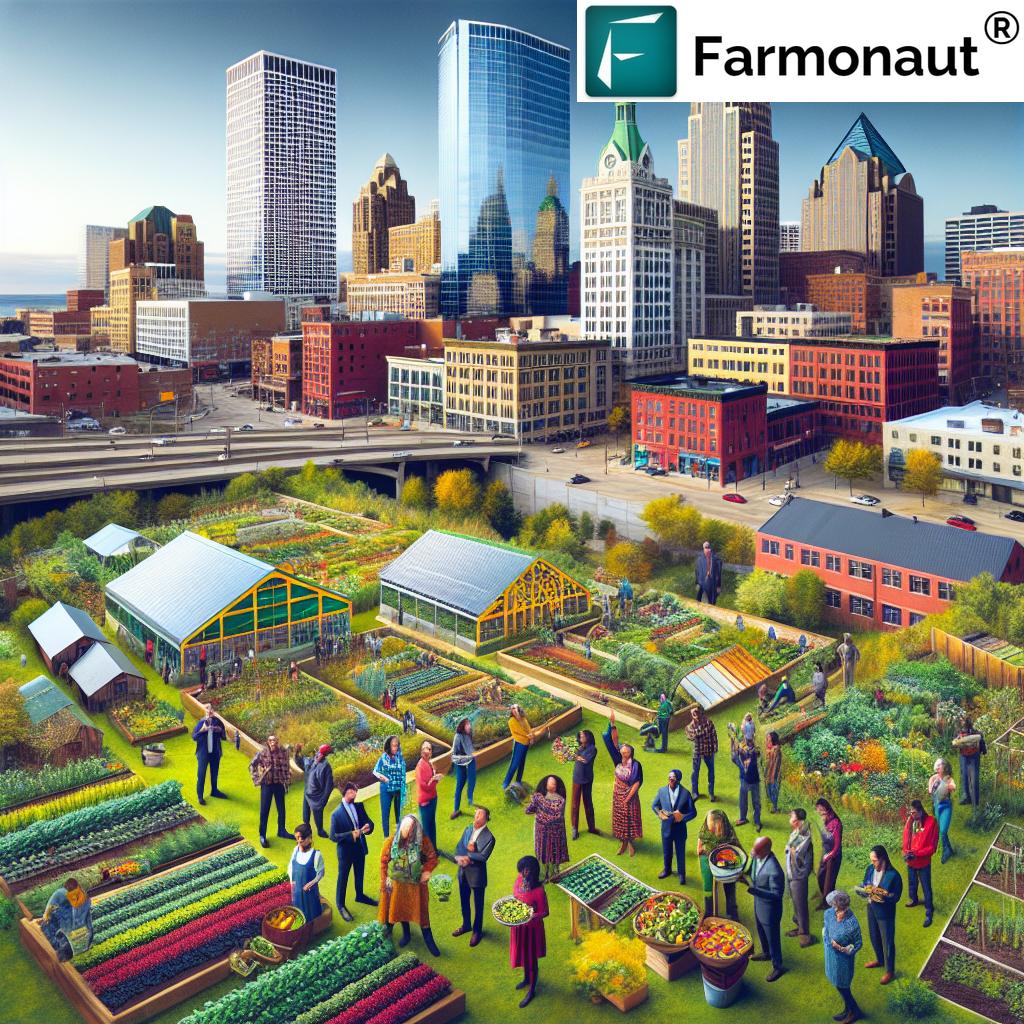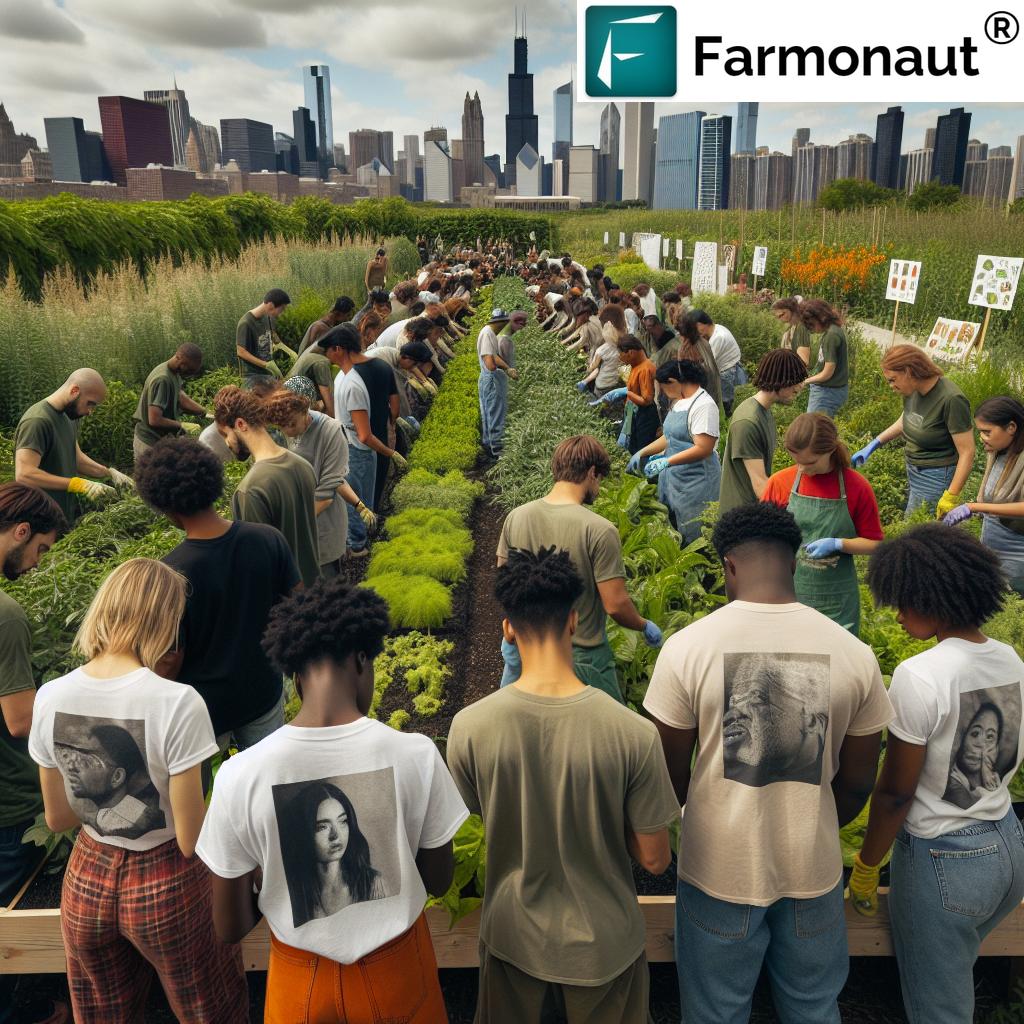Revolutionizing Milwaukee’s Food Future: Groundbreaking Urban Agriculture Conference Unites Local Farming Heroes
Milwaukee, Wisconsin – In a groundbreaking event that marks a significant milestone for the city’s sustainable food initiatives, Milwaukee hosted its first-ever Urban Agriculture Conference. This pivotal gathering, held at Vincent High School – the only Milwaukee Public School boasting a working farm – brought together a diverse array of urban farmers, agriculturists, and business owners, all united by their passion for cultivating a greener, more food-secure future for Milwaukee.

Strengthening Milwaukee’s Food Network: A Collaborative Approach
The Milwaukee urban agriculture conference served as a vibrant platform for knowledge exchange and collaboration, addressing the pressing need to bolster the city’s local food network. Ellen Colby of M.A.R.M. Farm, a key organizer and Milwaukee native, emphasized the conference’s primary goal: “We need to continue to strengthen and build our sustainable food network Milwaukee. We obviously have serious food access issues in Milwaukee, and events like this are vital in addressing them.”
This sentiment was echoed by Andre Ellis, founder of The C.A.G.E., who stressed the importance of unity in the urban farming community. “If we can come together, we can grow together,” Ellis stated, highlighting the conference’s role in fostering urban farming collaboration Milwaukee.
Addressing Food Security: A City-Wide Initiative
The conference shed light on the critical issue of food security in Milwaukee, with dozens of organizations working tirelessly to combat this challenge. From innovative growing methods to educating the youth about agricultural entrepreneurship, the event showcased a wide range of food security initiatives Milwaukee is implementing.
- Alternative growing techniques for urban spaces
- Community-based farming projects
- Educational programs on sustainable agriculture
- Initiatives to improve access to fresh, locally-grown produce
These efforts collectively contribute to strengthening the Milwaukee urban food system, ensuring that more residents have access to nutritious, locally-sourced food.
Empowering Youth: The Future of Urban Agriculture
One of the most inspiring aspects of the conference was the focus on youth agriculture programs. Organizations like Teens Grow Greens are at the forefront of empowering the next generation of urban farmers. Tylon Jones, a young representative from the organization, highlighted the importance of connection: “I think it’s important to connect everyone so you know you are not alone in this work.”
These youth urban agriculture programs not only teach valuable skills but also instill a sense of responsibility and connection to the community’s food system. By involving young people in urban farming initiatives, Milwaukee is cultivating a sustainable future for its food network.

Community Gardening: Grassroots Movement for Urban Sustainability
Community gardening Milwaukee emerged as a central theme during the conference, highlighting its role in promoting food security and community cohesion. These gardens serve as hubs for:
- Local food production
- Environmental education
- Community engagement
- Promoting biodiversity in urban spaces
By fostering a sense of ownership and connection to the food system, community gardens are playing a crucial role in Milwaukee’s urban agriculture landscape.
Sustainable Urban Farming: Innovative Techniques for City Agriculture
The conference showcased various sustainable urban farming techniques that are transforming Milwaukee’s cityscape into productive agricultural spaces. From rooftop gardens to vertical farming systems, these innovations are helping to maximize food production in limited urban areas.
Experts shared insights on:
- Hydroponic and aquaponic systems
- Urban composting methods
- Water conservation techniques
- Pest management in urban environments
These sustainable practices are not only increasing food production but also contributing to a greener, more resilient Milwaukee.
Local Agriculture Collaboration: Building a Stronger Food Network
A key takeaway from the conference was the urgent need for greater local agriculture collaboration. Andre Ellis pointed out the current fragmentation in food security efforts: “We need to work in more hubs and know where the hubs are, so that by learning what others are doing, we can congregate together, we can volunteer together.”
This call for unity underscores the importance of creating an interconnected community to sustain Milwaukee’s agricultural efforts. By fostering collaboration, the city can:
- Share resources more effectively
- Implement best practices across different initiatives
- Create a more resilient and responsive food system
- Amplify the impact of individual efforts through collective action
Urban Agriculture Day Milwaukee: Celebrating City Farming
In recognition of the growing importance of urban agriculture, the City of Milwaukee declared October 21 as Urban Agriculture Day Milwaukee. This official acknowledgment serves to:
- Raise awareness about urban farming initiatives
- Encourage community participation in local food production
- Recognize the efforts of urban farmers and organizations
- Promote the benefits of a localized food system
This annual celebration will serve as a reminder of the vital role that urban agriculture plays in creating a sustainable and food-secure Milwaukee.
The Road Ahead: Cultivating a Sustainable Future
As Milwaukee continues to emerge as a leader in urban agriculture, events like the Urban Agriculture Conference will play a crucial role in shaping the city’s food future. By bringing together diverse stakeholders, fostering collaboration, and promoting innovative farming techniques, Milwaukee is cultivating a more resilient and sustainable urban food system.
The success of this inaugural conference sets the stage for future gatherings, creating a platform for ongoing dialogue, knowledge sharing, and collective action in the realm of urban agriculture. As Ellen Colby noted, “Strengthening those connections and building this network are critical to support the city of Milwaukee and the county.”
With its growing network of urban farms, passionate agriculturists, and supportive community, Milwaukee is planting the seeds for a greener, more food-secure future. The Urban Agriculture Conference marks just the beginning of this transformative journey, promising a harvest of positive change for generations to come.
For those interested in leveraging technology for urban agriculture, consider exploring Farmonaut’s innovative solutions:
Access real-time agricultural data and insights through Farmonaut’s API:
For detailed information on integrating Farmonaut’s API into your urban farming projects, check out the developer documentation:
Download Farmonaut’s mobile apps to stay connected with your urban farm on the go:
As Milwaukee continues to cultivate its urban agricultural landscape, these technological tools can play a crucial role in optimizing farm management, increasing yields, and contributing to the city’s sustainable food future.


